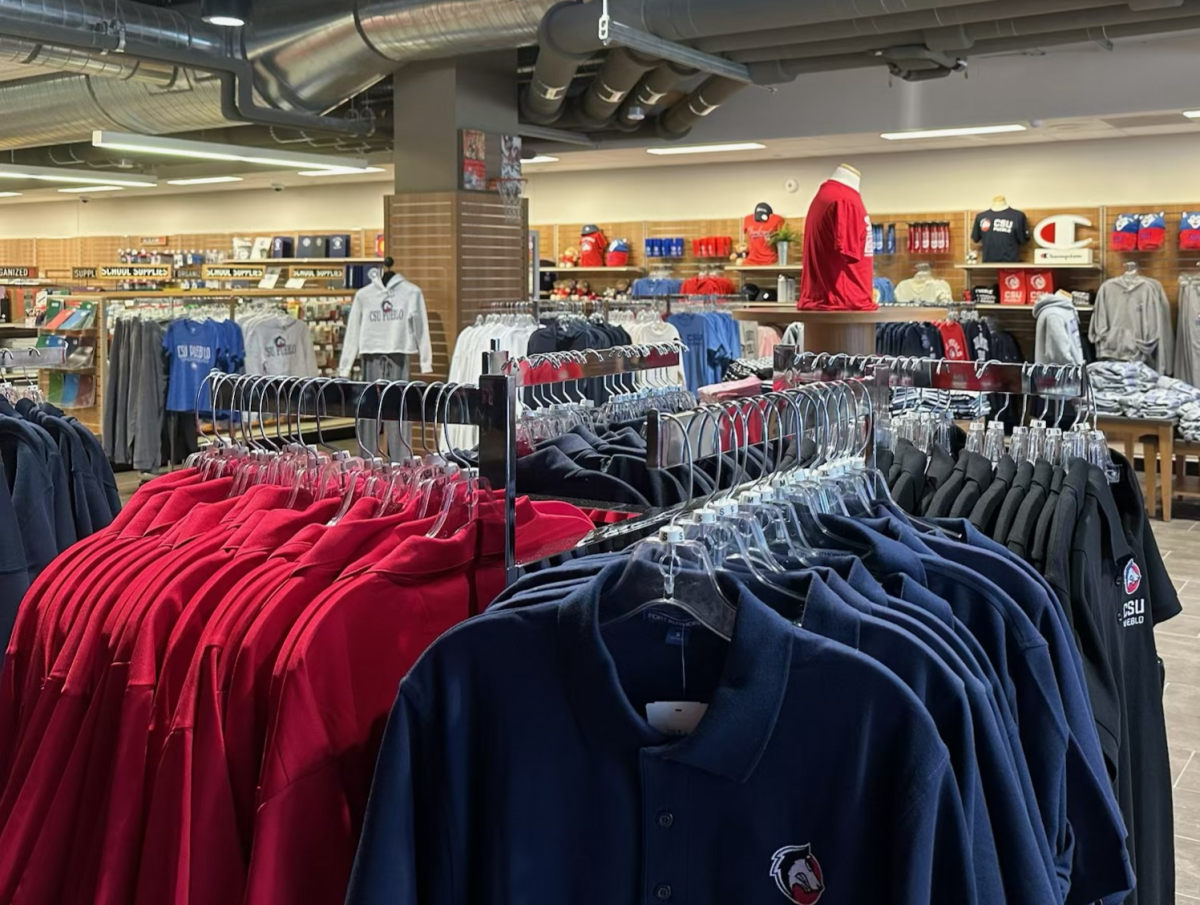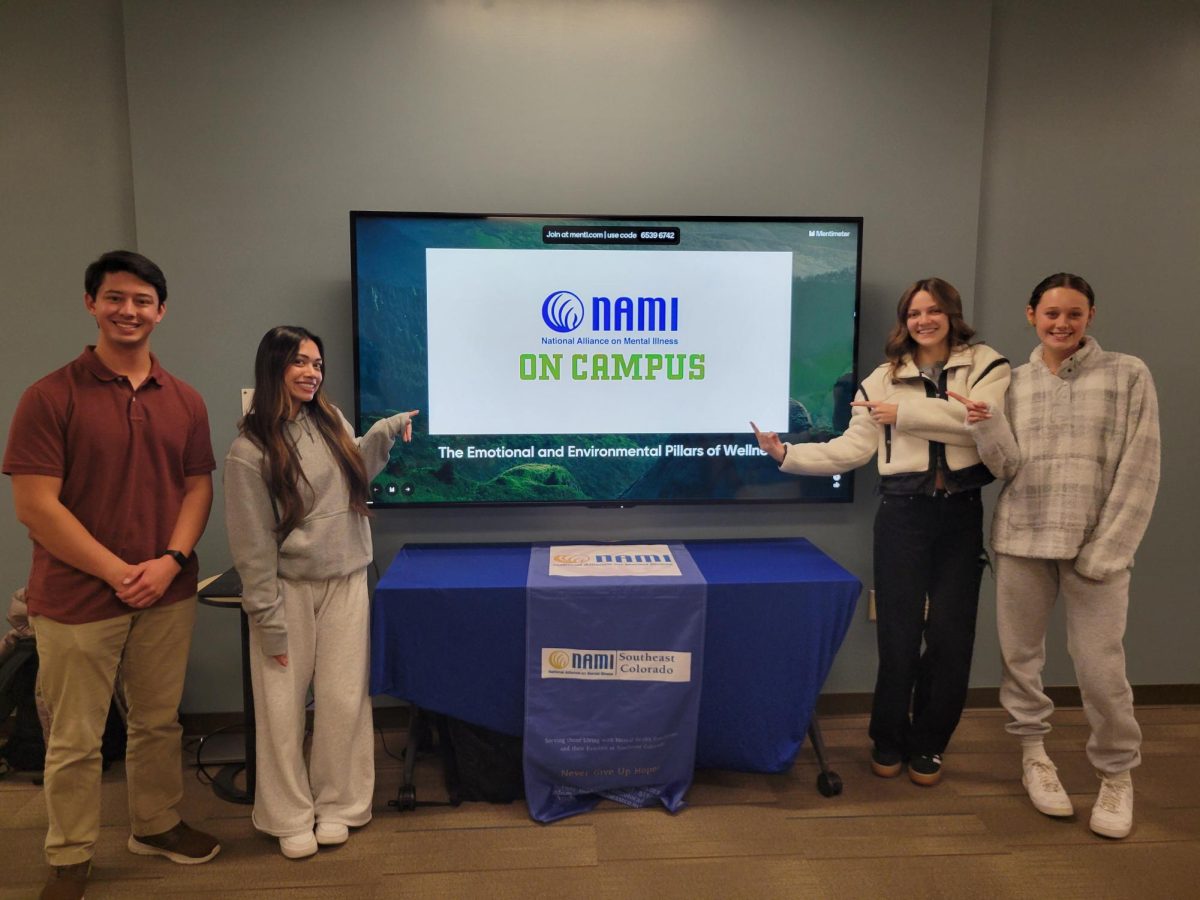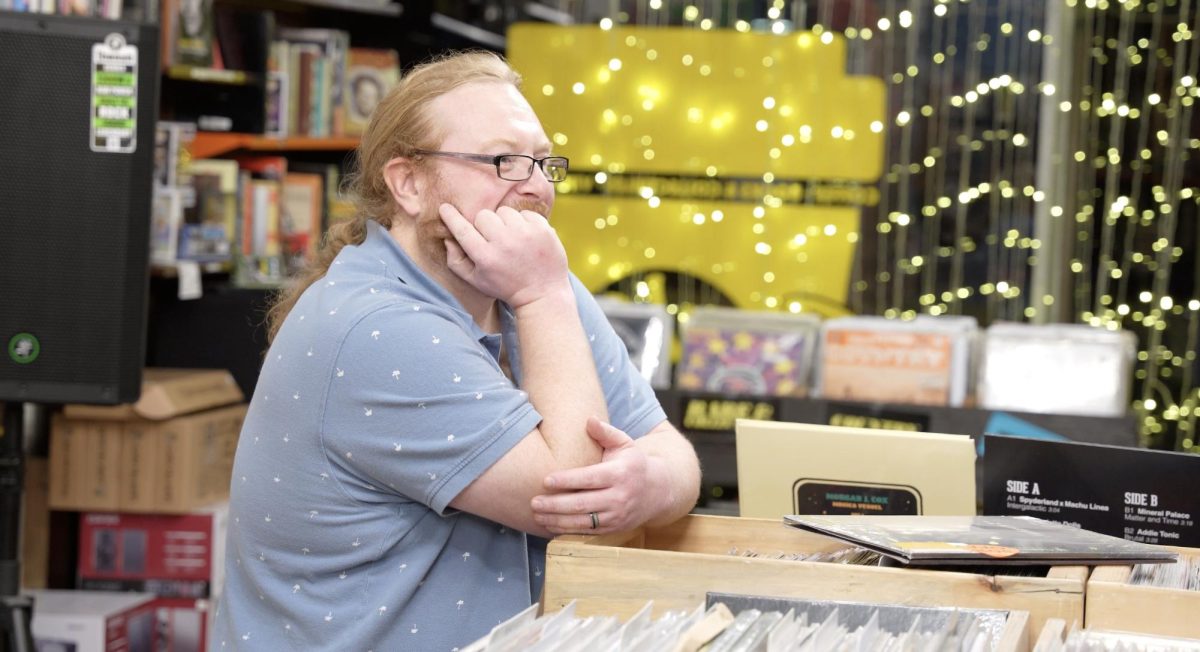The Vietnam War Memorial Wall exhibit, held Sept. 29 to Oct. 3 at CSU-Pueblo, affects everyone who pays homage to our fallen military, Provost Russ Meyer said.
“I stood there sobbing the first time I visited the real memorial wall in Washington, D.C.,” Meyer said. “The wall is a small portion of the people who died in that war, because a lot of Vietnamese people also died.”
The exhibit provided students with an opportunity to learn about the Vietnam War that occurred from Nov. 1955 to May 1975, Meyer said. People don’t realize how many lives were lost in that war until they visit the memorial, he said. The names of more than 50,000 military men are engraved on the wall, Meyer said.

“The real memorial wall is more striking because the wall gets higher and higher as you walk downhill,” Meyer said. “The artist of the memorial designed it this way to show us that we are in it over our heads. I served in the Army during that war, although I never went into battle.”
Meyer received his draft notice a week after President John F. Kennedy announced that married men would not be drafted into the Army, he said. Meyer, who was working for a clothing company at the time, said his supervisor asked an Army general to keep him out of the war. The general offered an alternative, Meyer said, but that he declined the offer.
“The general said, ‘I can’t get you out of the war, but I can get you a one year delay if you want it,’” Meyer said. “I said, ‘Thanks, but no thanks. A year won’t make any difference, so I’ll go now.’”
Meyer served as a desk sergeant at an Army base during his two years of service, he said. He didn’t go to Vietnam, he said, but knew soldiers who died there. The provost planned to visit the exhibit that had been set up on campus, but said he was nervous about finding more names of soldiers he knew.
“A lot of people in my company went to Vietnam and died there, several of them on the same day. The truck they were riding in was blown up,” Meyer said. “I probably will find another name on the wall I didn’t expect to find. I hated that damn war.”
Meyer also hated the way U.S. citizens treated soldiers upon their return to the U.S., he said. Soldiers were called baby killers, he said, and were made to feel they were to blame for the war.
“I hated what we were doing to our troops,” Meyer said. “I had sympathy for these people because I came very close to being one of them. Veterans were treated bad socially, and I had friends who wouldn’t tell people they went to Vietnam.”
Meyer educated his children about the Vietnam War by sharing his own experiences with them, he said.
“I talked about the war all the time, so my children were acutely aware of it,” Meyer said.
The Vietnam War is one of the darkest periods in U.S. history, Meyer said. The provost hopes the U.S. never experiences another Vietnam War, he said, but that the war in Iraq comes close.
“We don’t need to repeat the Vietnam War, although I think we’re in the midst of it again with this war,” Meyer said.







